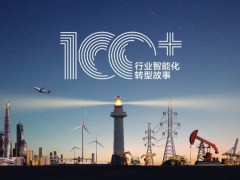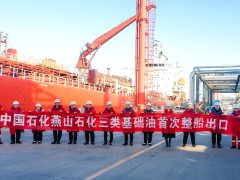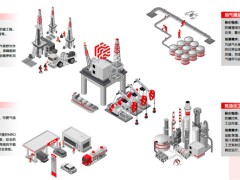据今日石油2021年6月4日报道,为了满足世界能源需求,未来几年上游投资将大幅增加。因此,圭亚那-苏里南盆地等地的深水“优势桶”将继续在全球推动低碳能源方面发挥关键作用。
美国著名综合性石油公司赫斯公司圭亚那-苏里南勘探评估与开发副总裁蒂莫西·奇泽姆
近日在苏里南能源油气峰会上告诉与会者,石油经济开始以比预期更快的速度复苏,包括
国际能源署(IEA)的各种预测继续表明,石油和天然气在能源结构中保持着相当大的份额。
奇泽姆说:“石油需求是由运输和石化产品驱动的,而石油和天然气在能源结构中所占的份
额在IEA的所有预测中都很可观。”“但如果我们要满足能源需求,我们就需要投资。”
自2014年以来,上游投资下降了40%以上,IEA估计,到2040年,每年需要超过5000亿美元的投资才能满足需求。
奇泽姆指出:“这有点令人生畏。”“正如伍德麦肯兹所说,深水石油代表着得天独厚的石油资源。实际上,深水石油已经表明,其碳足迹明显低于煤炭,重油,焦油砂,甚至液化天然气(LNG)。因此,这个目前正在脱颖而出的深水盆地将对全球能源转型非常重要。”
他说,如果新的石油和天然气开发项目如IEA新的净零报告所述停止,那么到2040年,全球石油需求将导致供应减少50%以上。
奇泽姆说:“事实上,根据国际能源署的可持续发展设想,到2050年,天然气和石油将继续占世界能源结构的一半。”“可再生能源届时还将依赖于制造风力涡轮机和太阳能电池板所用的天然气和石油,以及为电力负荷量和运输系统提供支持。”
奇泽姆说,这是非常关键的,他指出,任何实现净零排放的途径都将包括在世界各国继续使用天然气和石油来取代煤炭。
他说,赫斯公司支持巴黎协定和到2050年前实现净零排放的目标。“我们是减少温室气体排放的行业领导者,” 奇泽姆如是说。“在我们的业务中,20多年来,我们在设定温室气体目标方面一直是美国企业中的先行者和领导者。所以,这对我们来说并不新鲜。”
伍德麦肯兹表示,石油和天然气生产国的政府在2021年有很多事情要考虑。更严格的财政条件可能会让这些国家处于能源转型的最前沿,但对上游行业的支持也可能仍然是优先事项,尤其是在经历了一年的经济中断之后。
像圭亚那这样的国家,石油生产的收入将在推动经济发展目标方面发挥关键作用,它们将希望确保上游投资继续。
奇泽姆说:“并不是所有的政府都想要完全除掉上游投资。”“对许多国家,特别是在发展中国家来说,开发资源、提供能源、政府收入和当地就业仍然是较高的优先事项。不过,财政框架必须符合目标。”
专家们曾说过,圭亚那有竞争性的条件是其海上勘探和生产业务恢复能力的关键,特别是在全球新冠肺炎疫情大流行导致油价下跌和未来市场前景的高度不确定性期间。
李峻 编译自 今日石油
原文如下:
Guyana-Suriname Basin will be important to global energy transition – Hess VP Exploration
In order for the energy needs of the world to be met, upstream investments will have to significantly increase in the coming years. Deepwater ‘advantaged barrels’ in locations such as the Guyana-Suriname Basin will therefore continue to play a pivotal role in the global push for low-carbon energy sources.
Timothy Chisholm, Hess Corporation’s Vice President Exploration Appraisal & Developments, Guyana-Suriname, told participants at the Suriname Energy Oil & Gas Summit on Wednesday the oil economy is starting to recover faster than was expected and various scenarios, including those from the International Energy Agency (IEA), continue to show that oil and gas maintains a meaningful share of the energy mix.
“Oil demand is driven by transportation and petrochemicals and oil and gas maintains a meaningful share of the energy mix in all of the IEA’s scenarios that they’ve painted for our industry,” Chisholm said. “But if we are going to deliver the energy needs, we are going to need to invest.”
Upstream investments are down over 40% since 2014 and the IEA estimates that it’s going to require more than 500 billion per year to meet the demand out to 2040.
“It’s a bit daunting,” Chisholm pointed out. “Deep water oil represents… advantaged barrels as Wood MacKenzie referred to deep water oil. And they’ve actually shown that the carbon footprint is significantly lower than coal, heavy oil, tar sands and even LNGs. So, this deep-water basin that’s emerging right now is going to be very important to the overall energy transition.”
He said if new oil and gas developments were halted as outlined in the IEA’s new net-zero report, global oil demand would strip supply by more than 50% in 2040.
“In fact, the IEA’s sustainable scenarios find that natural gas and oil will continue to comprise half of the world’s energy mix through 2050,” he stated. “Renewable energy also depends on natural gas and oil from use in the manufacturing of wind turbines and solar panels as well as to back up electricity capacity and transportation systems.”
Chisholm said this is very critical, pointing out that any pathway to net zero would include the continued use of both natural gas and oil to displace coal in countries around the world.
He said Hess supports the Paris Agreement and the goal to achieve net zero by 2050. “We are an industry leader in reducing greenhouse gas emissions,” he said. “At Hess, in our operations, we’ve been a first mover and leader among US companies in setting greenhouse gas targets for over 20 years. So, this is not new to us.”
WoodMac said governments in oil and gas producing countries have a lot to think about in 2021. Tougher fiscal terms could put countries at the sharp end of the energy transition – but support for upstream sectors could also remain a priority, particularly after a year of economic disruption.
Countries like Guyana, where revenues from oil production will play a critical role in pushing development goals, will want to ensure upstream investments continue.
“Not all governments will want to kill off upstream investment just yet,” Chisholm said. “For many, particularly in developing countries, the development of resources, provision of energy, government revenues and local employment are still a higher priority. Nevertheless, fiscal frameworks must be fit for purpose.”
Experts have said Guyana’s competitive terms have been key to the resilience of its offshore exploration and production operations, particularly throughout the pandemic which has resulted in falling oil prices and high uncertainty about future market scenarios.
免责声明:本网转载自其它媒体的文章,目的在于弘扬石化精神,传递更多石化信息,并不代表本网赞同其观点和对其真实性负责,在此我们谨向原作者和原媒体致以敬意。如果您认为本站文章侵犯了您的版权,请与我们联系,我们将第一时间删除。







